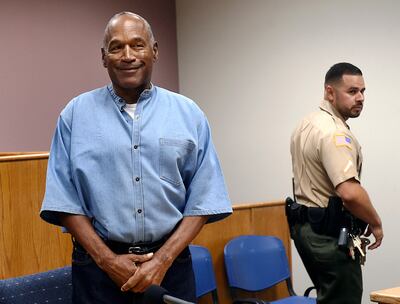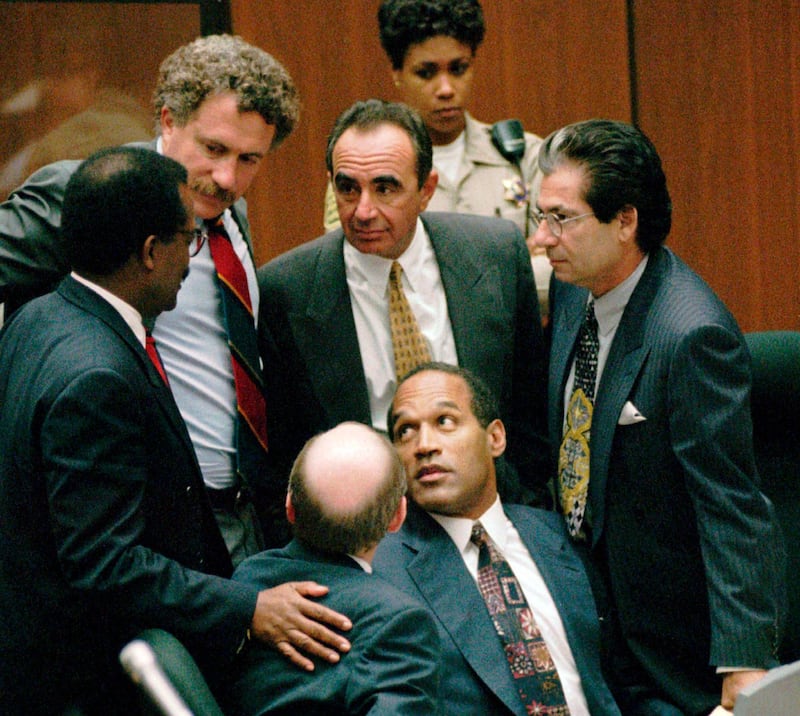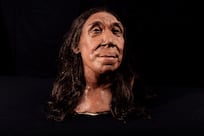Once upon a time, there was a celebrity. We saw him everywhere, selling products and smiling for the cameras. But one day, trouble struck, and instead of apologising, the celebrity retreated into a cocoon of comforting lies and willful obfuscation. He was confident that fame would be his protection, even when confronted with the most appalling accusations. And he was right, to a point. Fame won out over facts – at least for a time.
2016 was the year American voters elected a reality-TV star to be the president, but it was also the year that Orenthal James Simpson returned to the collective national consciousness after a long hiatus. For those of us around in the mid-1990s, Simpson’s return was a reminder of a simpler time, when the country was able to devote an entire year to follow a murder trial.
Simpson has been away for nine years after being convicted of armed robbery, although one might be forgiven for feeling as if he had been out of the public eye for twenty-two, since the October day in 1995 on which his verdict was announced. Simpson is the Rip Van Winkle of our era, returned from a long absence to discover a world transformed and yet unnervingly resembling the one he left. Simpson was entirely absent from Barack Obama’s America, but returns in time for the presidency of another celebrity summoned by fate to the pinnacle of power. One 70-year-old man takes up residence in the White House; the other 70-year-old man is soon to leave his home in Lovelock Correctional Centre in Nevada.

Simpson was one of the original football matinee idols, moving from a remarkable career with the NFL's Buffalo Bills into a career in entertainment. He became a football sideline reporter and an actor in films such as The Towering Inferno. He was one of the first African-American athletes to parlay his fame into a full plate of commercial endorsements. By the 1990s, though, his football career was 15 years in the rear-view mirror, and Simpson was one of those strange birds, famous primarily for being famous. He was right at home among the vaguely familiar faces chosen to star in the early-90s Naked Gun trilogy, appearing alongside the likes of Priscilla Presley and George Kennedy. He was the not-so-funny sidekick who fell down a flight of stairs in a wheelchair, the guy who was always on TV renting a car. And then he was on TV, in another car – a white Ford Bronco making its slow-motion escape.
READ MORE:
The Simpson trial has forever locked in the definition of “media circus”. The case was so obsessively scrutinised, that the trial judge became a celebrity, and the defendant’s slacker housemate became an even bigger celebrity. The outcome was considered to be preordained; how could any jury find Simpson not guilty of murdering his ex-wife Nicole Brown Simpson and Ron Goldman, with the mass of circumstantial evidence, the blood trail at both his house and his ex-wife’s house, and the discovery of his black gloves outside Nicole’s house?
To many white Americans, the not-guilty verdict was so incomprehensible, that the idea of a jury choosing to set him free was infuriating. But the verdict was as much about Latasha Harlins and James Mincey and Rodney King, and the all-too-numerous African-American victims of officially sanctioned police violence in southern California. And as much about William Parker and Daryl Gates and the other leaders, who had transformed the Los Angeles Police Department into a paramilitary force staffed and run by white men whose unstated mission was to pacify and suppress the city’s African-American population.
King’s beating and Harlins’ death – shot and killed by a Korean-American storekeeper – had been recorded on video in the early 1990s, and yet their assailants had walked free, a visible reminder that black lives did not yet matter. The issue at hand, as Simpson defence lawyer Johnnie Cochran brilliantly framed it, was less the guilt or innocence of this particular defendant, than the ability of a black Angeleno to receive a fair shake from the Los Angeles Police Department. Cochran was asking for figurative recompense for those who had been beaten and killed by the LAPD without any visible recourse. O J Simpson, who had once famously proclaimed, “I’m not black, I’m O J,” was selected by the angel of history, never without her own impish sense of humour, to receive symbolic compensation for 400 years of American racism.
Simpson went free in part because he was too famous to jail. But the same luck that led him to escape inevitably, led to his receiving a stiff nine-to-thirty-three-year sentence for robbing a memorabilia dealer who he believed had stolen some of Simpson’s property, while a court awarded a $33.5 million (Dh123m) judgment against him in 1997, for the wrongful deaths of his wife and Goldman.
READ MORE:
He is hardly a benign figure. The man who saw fit to write a book called If I Did It, in which he laid out the – supposedly hypothetical – means of murdering his wife and Goldman, the two people he had so strenuously and vigorously denied harming, had managed the remarkable accomplishment of crafting an entirely new brand of ghoulishness. Until last year, Simpson had seemingly been relegated to the same cultural garbage heap in which other 1990s detritus we had collectively agreed to forget about, such as the Macarena.
But time, and TV, have made us more sympathetic to Simpson, or at least to his erstwhile supporters. Those chanting "Free O J" may or may not have been entirely wrong about Simpson's innocence, but can there be any doubt left about the persistent racial biases of the American judicial system?
The story of O J Simpson stands at the confluence of two pervasive trends in American society: the corrosive influence of celebrities and the irrepressible onslaught of police malfeasance. Open up this past weekend's New York Times, and the front page features one story about a Minneapolis police officer who killed a woman who had called to report a crime taking place outside her house, and another about the former star of The Apprentice, now vested with the authority to determine the status of American sanctions against Russia. Simpson's fated encounter with American justice feels fresh once more because we are living in that toxic brew of Us Weekly and Blue Lives Matter – a pro-police campaign set up in response to the Black Lives Matters – swimming in the murk, hoping to keep our heads above water.

Two superb works of art, each intending to place Simpson in the context of his times, debuted on television last year. Ezra Edelman’s documentary
OJ: Made in America
lingered for hours before getting to the deaths of Nicole Brown Simpson and Goldman, delving into Simpson’s childhood, football stardom and film career. Ryan Murphy’s limited-run series
The People v. OJ Simpson
concentrated on the murder trial, with Simpson himself almost forgotten in the context of the travelling carnival surrounding him. For Murphy, the Simpson trial was the ur-stone of our contemporary celebrity carnival, with a teenaged Kim Kardashian (played by Veronica Galvez) escorting her father, Robert Kardashian (a superb David Schwimmer), Simpson’s pal turned defence lawyer, like the ghost of America’s tabloid future.
The path from Simpson to Kardashian is a winding one, passing by the likes of Paris Hilton, Phil Spector, and Bill Cosby, but it helps to see the subsequent explosion of reality television as an accidental byproduct of the O.J. trial. Americans grew accustomed to tuning in for the latest installment in the genuine spectacle on their television screens, and soon enough, the wizards of TV began to manufacture their own prefabricated spectacles. We craved the oddity of the ordinary, and Keeping Up with the Kardashians soon followed, an emormous hit that lacked an entirely rational explanation for its existence.
READ MORE:
We hunger for reporting from the inner sanctum of the celebrity world, craving access while also silently hoping for evidence that they might be as self-defeating and as craven as we are. Simpson being arrested for murder recalibrated the possibilities of our celebrity fixation. There could be no greater schadenfreude, no greater third-act turnabout, than a Hall of Famer transformed into a felon, swapping out the cleats for prison stripes. The truth is, O J Simpson makes more sense on television, where he can serve as a malleable symbol and mass Rorshach test, than he does in reality. Murphy and Edelman have helped us grapple with the raw edges of Simpson’s story, but the idea of the real O J back on the golf course, is a cause for discomfort nonetheless.
Will we still care about O J Simpson now? In most senses, the world has passed him by. He is a senior citizen now, his most famous sporting exploits a half-century in the past, and even his criminal ones a quarter-century old. But for as long as we fixate on the lives of the famous, hungering for their successes and silently rooting for their failures, we will have O J with us. He is the paragon of the semi-mythological American success story and the concomitant desire to see those same idols smashed. No one could ever be more thoroughly demolished than he was, but here we are in 2017, still convinced that celebrities will be our saviours. Perhaps in an alternate universe, President O J Simpson would be preparing to tackle his new billion-dollar infrastructure bill this week while a former property tycoon would be out on parole. Would the United States be all that much worse off?





